Thailand's plastic waste problem is getting worse as people throw away takeout containers, face masks, and gloves
Plastic waste, including discarded takeout containers, masks, and gloves, shot up 62% in Bangkok since the coronavirus pandemic broke out.
Thailand is one of five countries, along with Indonesia, the Philippines, China, and Vietnam, that produce half of the plastic in the world's oceans.
But the pandemic pollution problem isn't limited to just Thailand — coronavirus-related litter is washing up all around the world.
Environmentalists in Thailand are trying to come up with creative solutions to the country's growing problem of plastic waste.
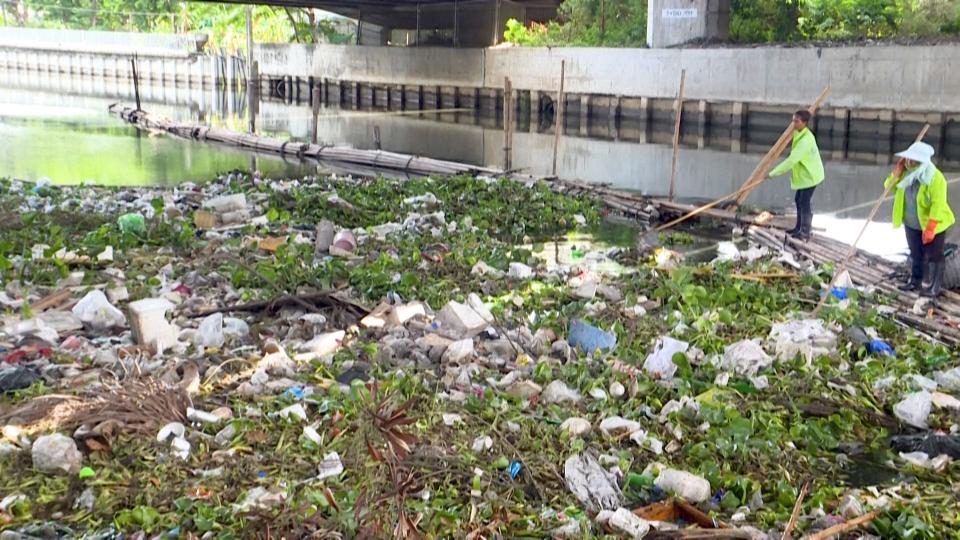
AFP
This plastic is being shredded to go right into the ground — to build roads.
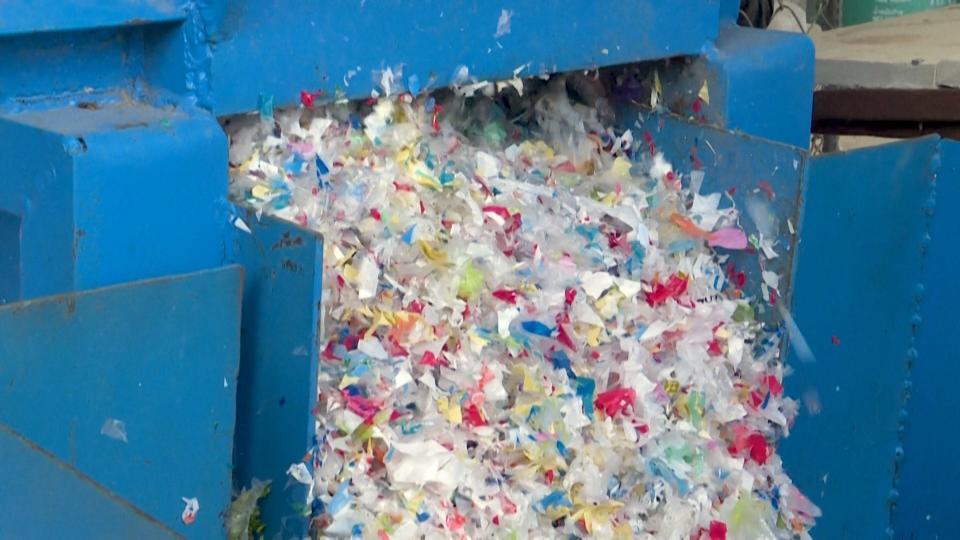
AFP
At a factory in Chiang Mai, Thailand, Professor Wechasawan Lakas is turning Thailand's plastic into colorful slabs used to pave roads.
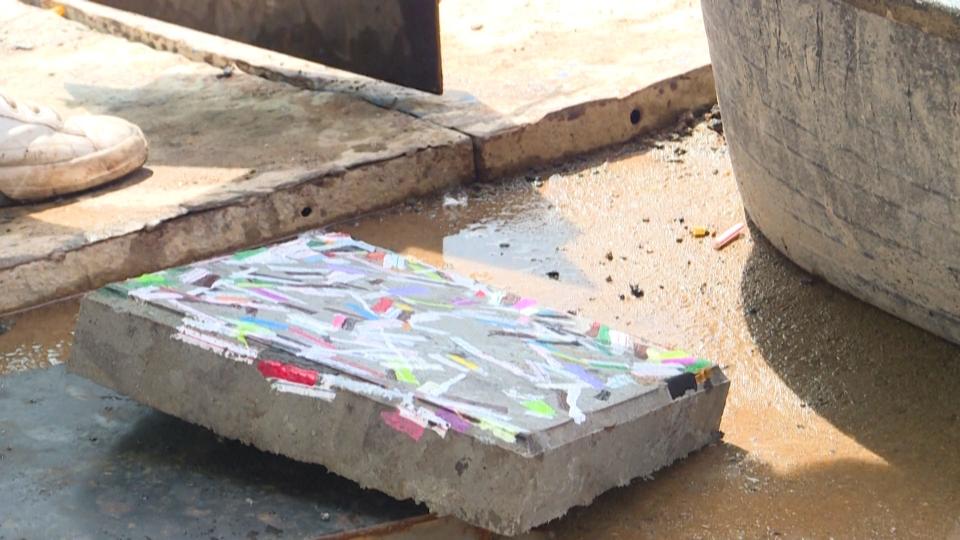
AFP
Lakas says that he receives 10 to 20 boxes of packages every day. "Approximately, maybe three tons per month and 40 tons per year. All people of Thailand send it to me," he said.
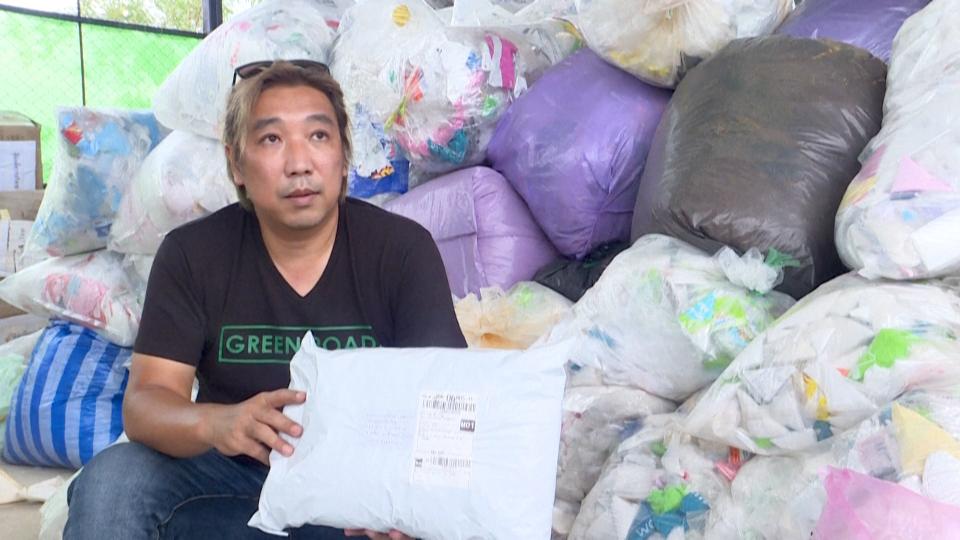
AFP
He won't be running out of plastic to use anytime soon. This year, plastic waste in Thailand skyrocketed because of the coronavirus pandemic.
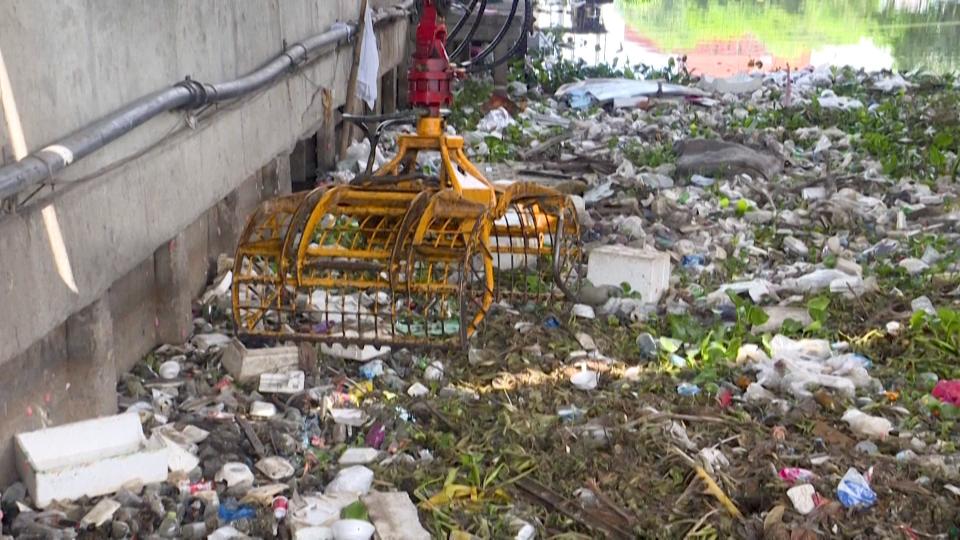
AFP
Source: Reuters
As people stay home during the lockdown, waste from food deliveries has increased — and the plastic has ended up clogging landfills and canals.
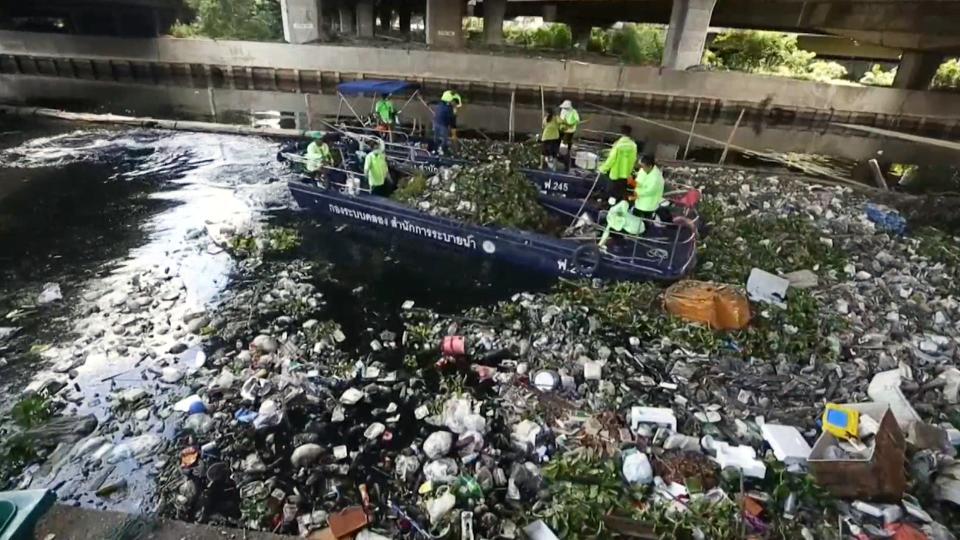
Reuters
Source: Reuters
"The percentage of recycling is lower than normal," Wijarn Simachaya, the president of the Thailand Environment Institute, told Reuters. "People are aware of the disease. That's why their behavior has changed. They just throw plastic away. That's why we have lots of plastic at this period of time."
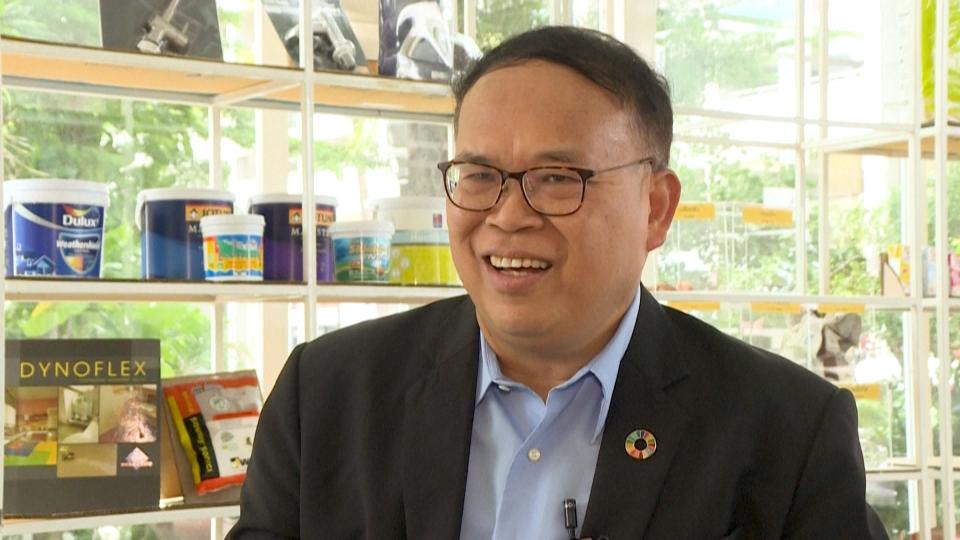
AFP
Source: Reuters
In Bangkok alone, the amount of plastic waste increased 62% in March and April compared to the same time last year, according to the Thailand Environment Institute.
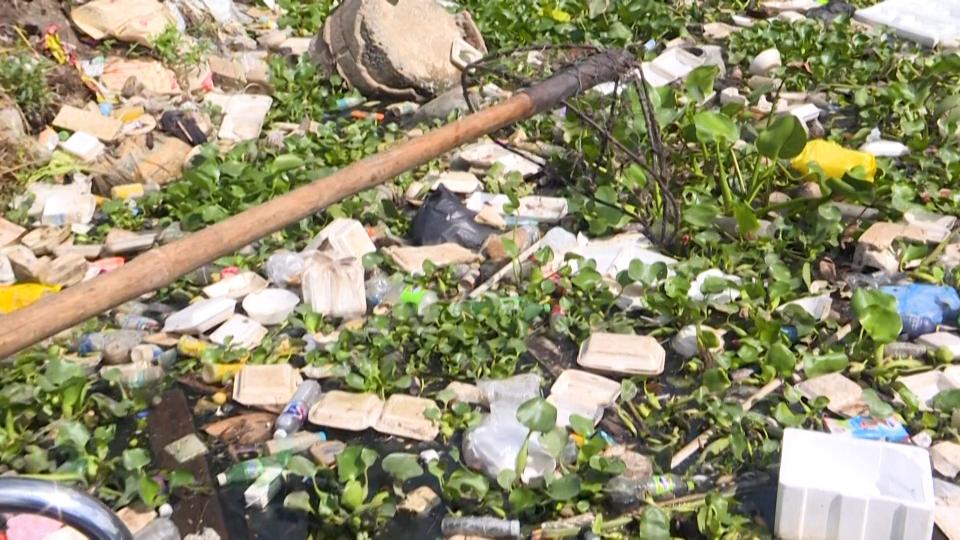
AFP
Source: Thailand Environment Institute
It feels like a setback, since the government has been trying to curb the plastic problem. Thailand is one of five places, along with Indonesia, the Philippines, China, and Vietnam, that produce half of the plastic in the world's oceans.
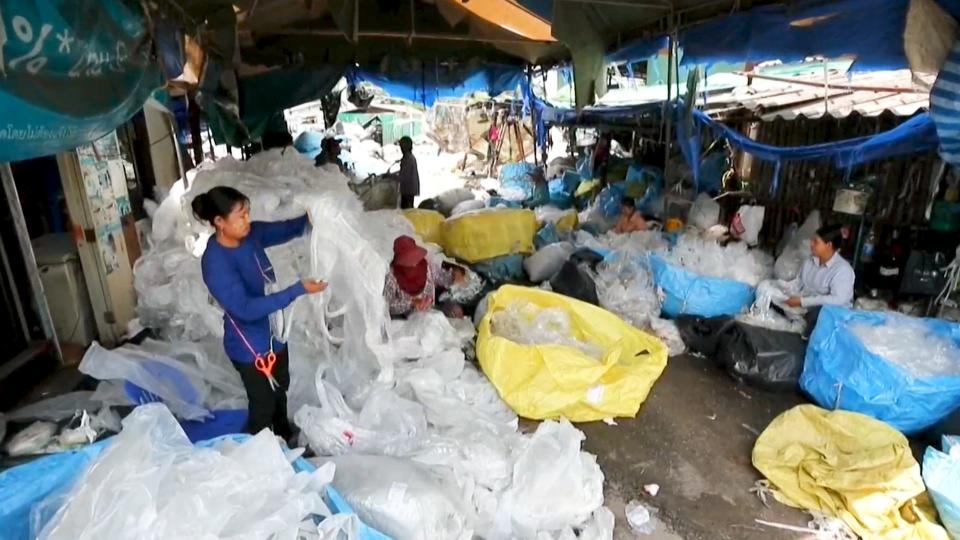
Reuters
Source: Ocean Conservancy
In January, Thailand banned plastic bags in grocery and retail stores.
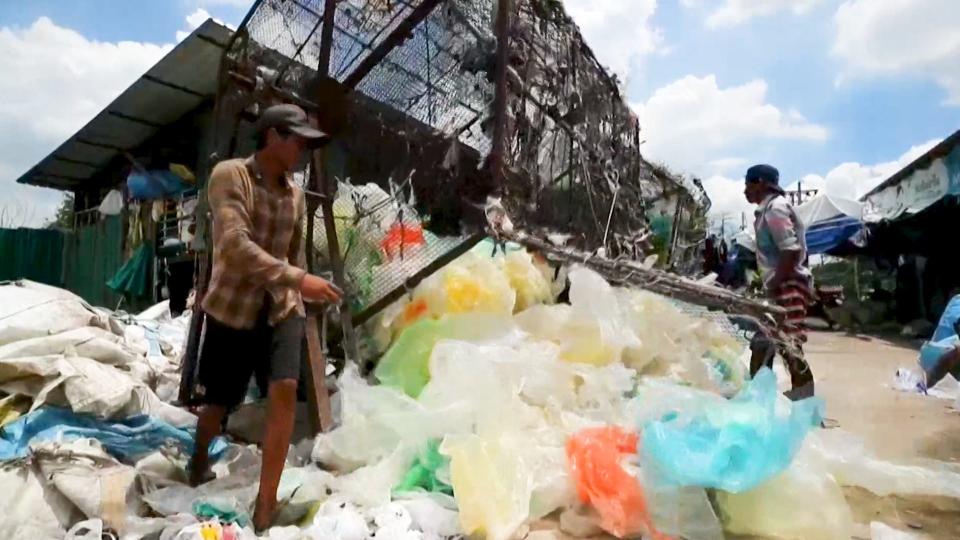
Reuters
Source: Reuters
But the pandemic pollution problem isn't just limited to food delivery in Thailand. An increase in plastic waste has been observed all over the world.
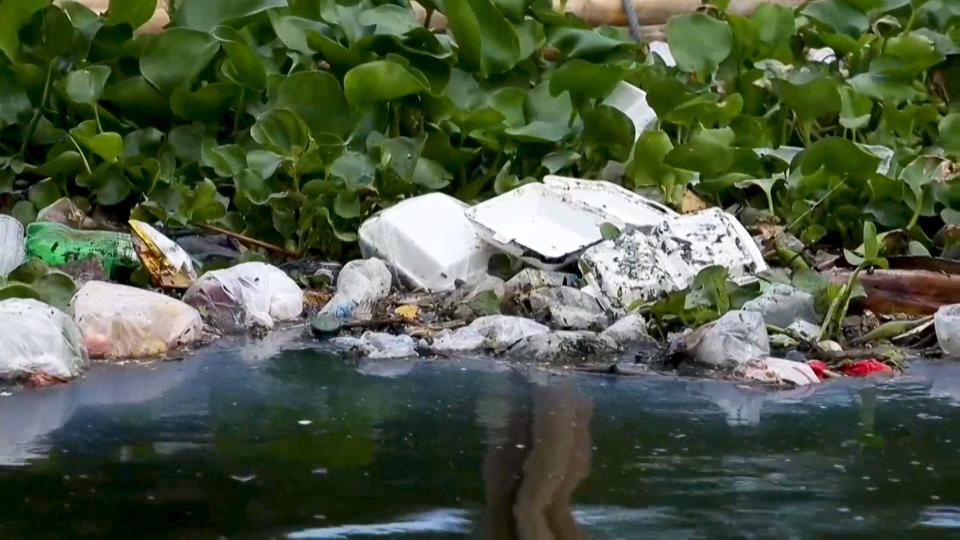
AFP
"I would say every single one of us is responsible," Gary Stokes, cofounder of marine conservation organization OceansAsia, told Reuters. "Every single of us can make a difference and make a change."
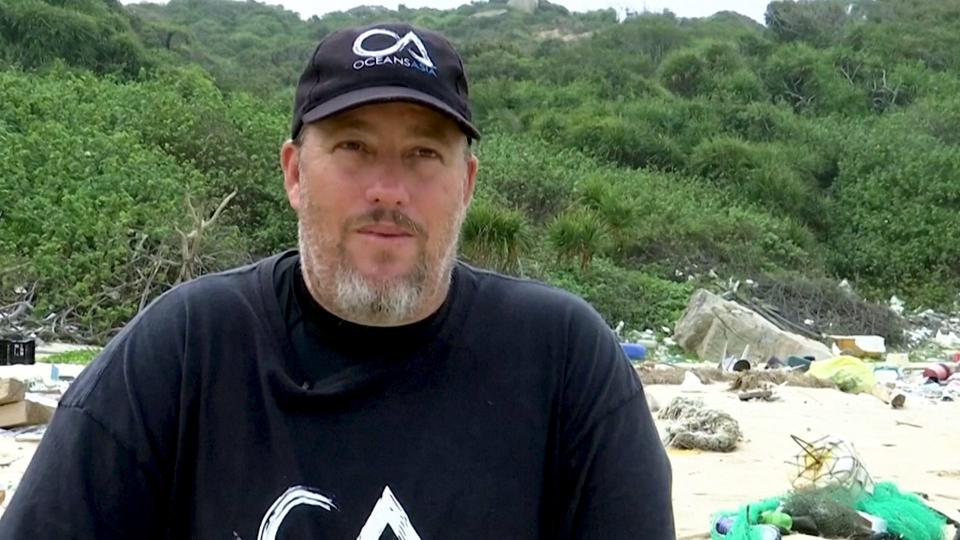
Reuters
Medical waste, including protective equipment, has been washing up on shores in Hong Kong.
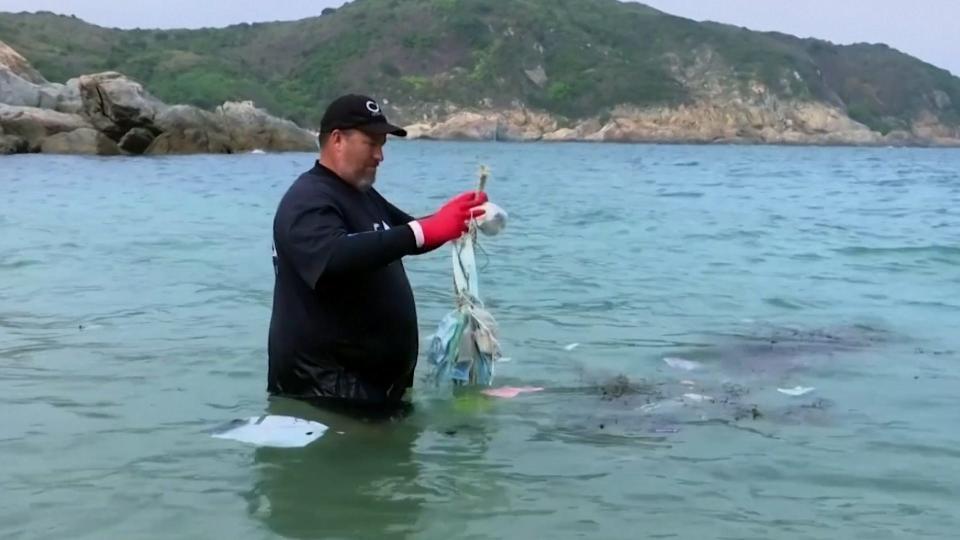
Reuters
And divers have found masks and gloves floating around the sea in France.
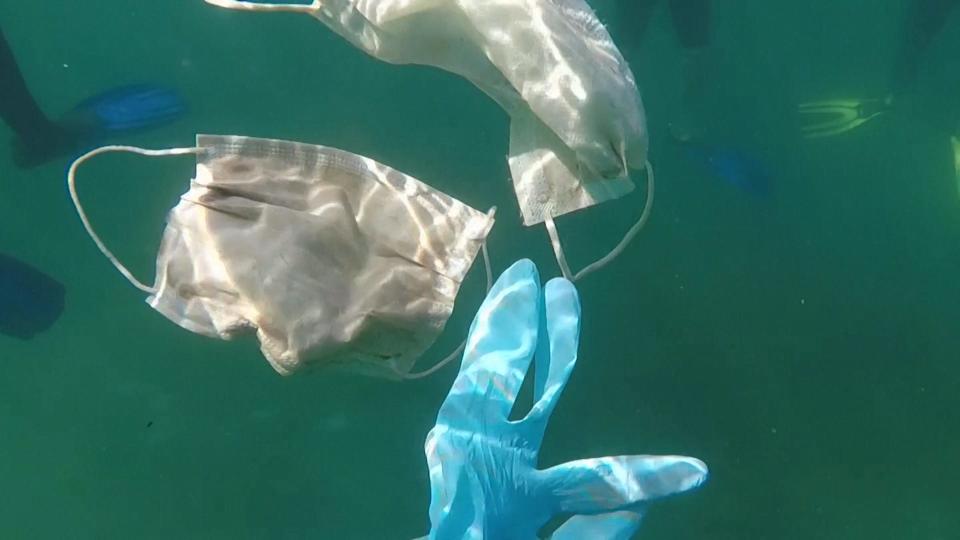
Laurent Lombard/Opération Mer Propre/Reuters
"It's completely new," said Laurent Lombard, founder of French nonprofit Opération Mer Propre. "We didn't have this before. It was exceptional to find a glove, and I had never seen a mask before. It's a new type of pollution."
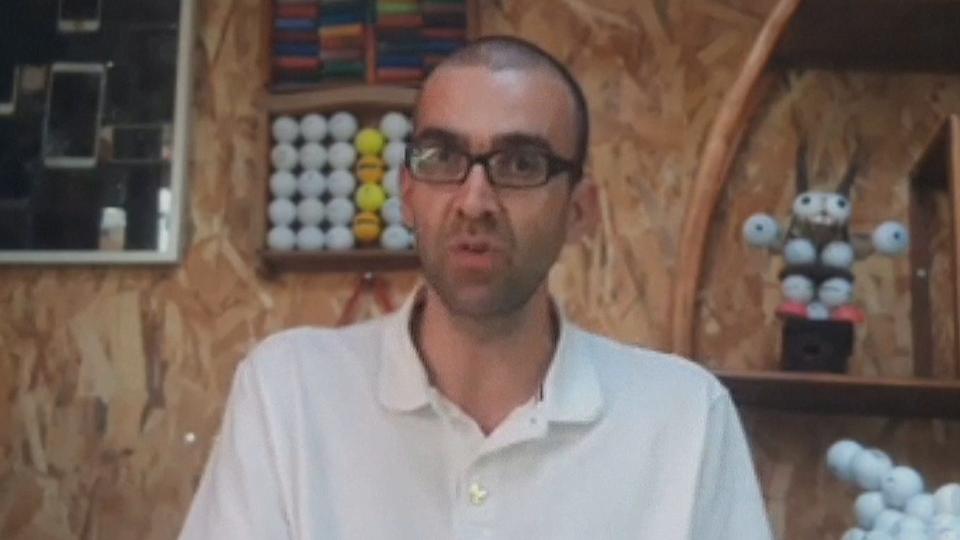
Reuters
Source: Reuters
In Thailand, former Olympic windsurfer and environmentalist Amara Wichithong says that everyone needs to do their part.
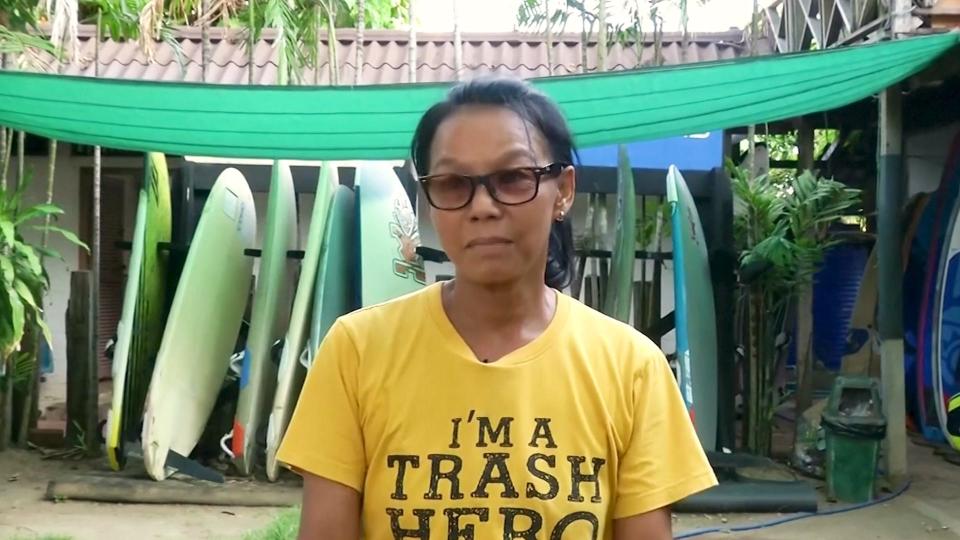
Reuters
She's been paddling out in the waters of Pattaya to collect, sort, and recycle trash before it gets pulled out into the ocean.
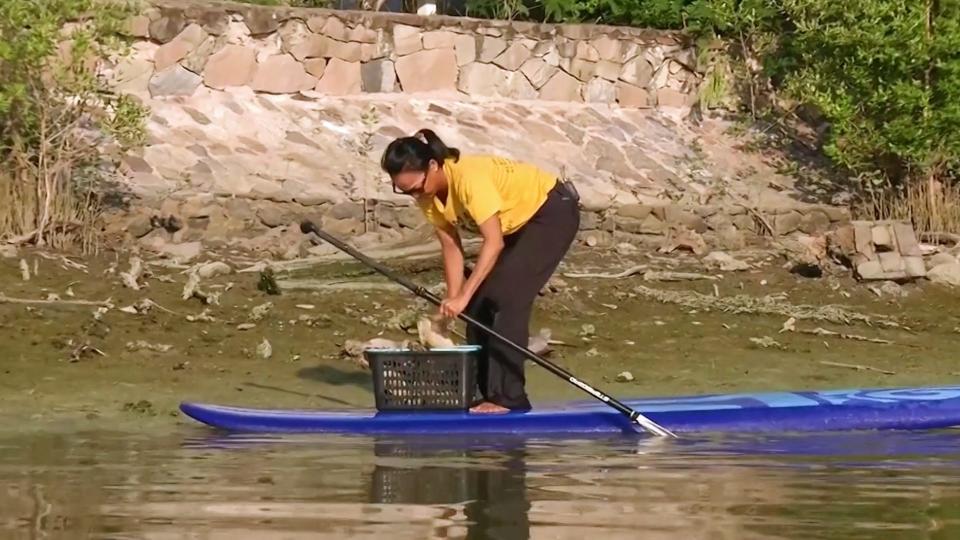
Reuters
"As long as we, humans, don't change our behaviors or still lack awareness, even if the virus stays on with us for the next 10 years, we wouldn't be able to conserve the sea," she said.
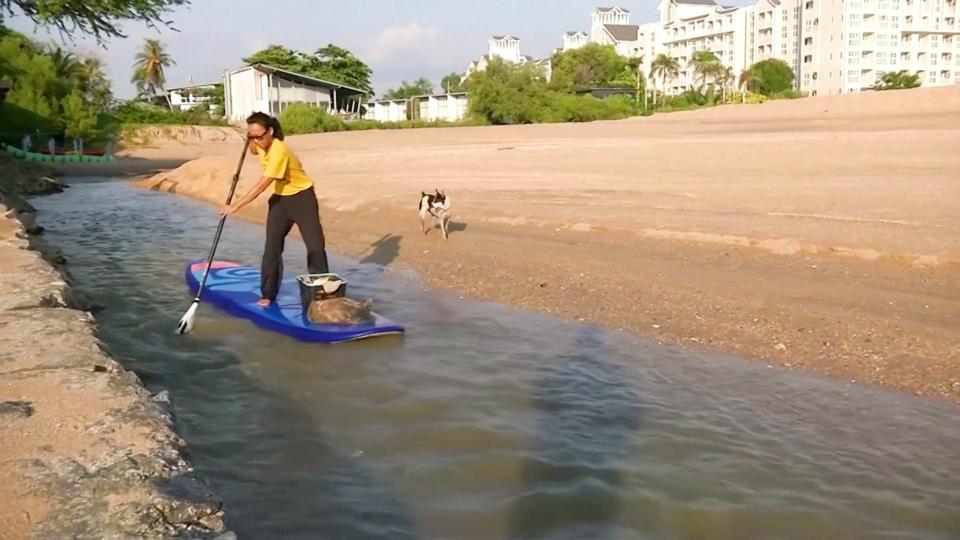
Reuters
Read the original article on Insider

